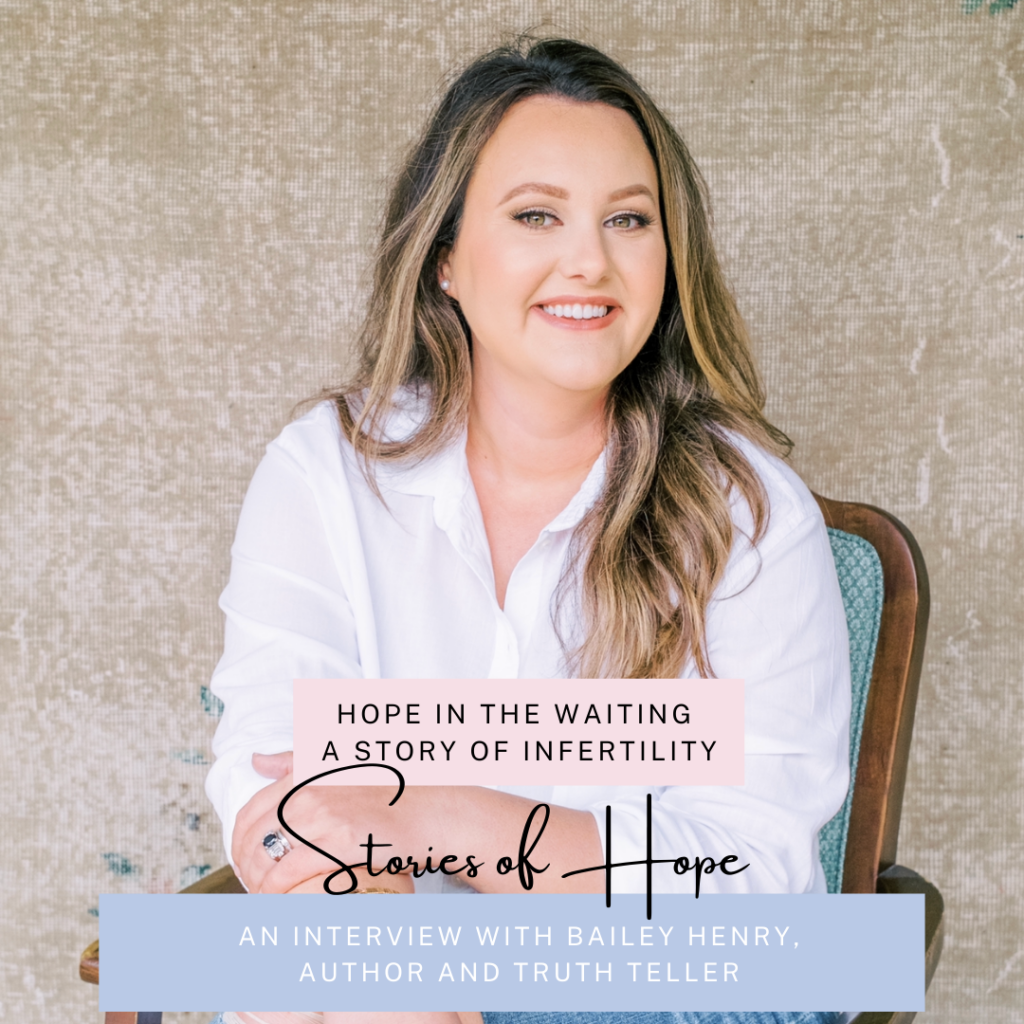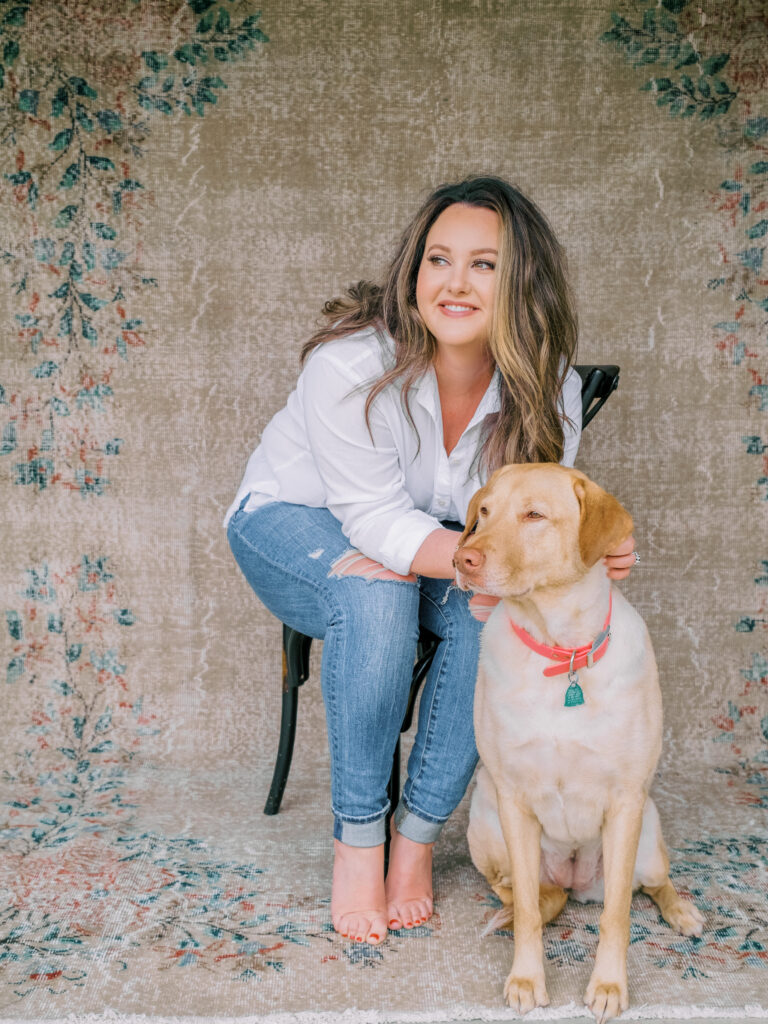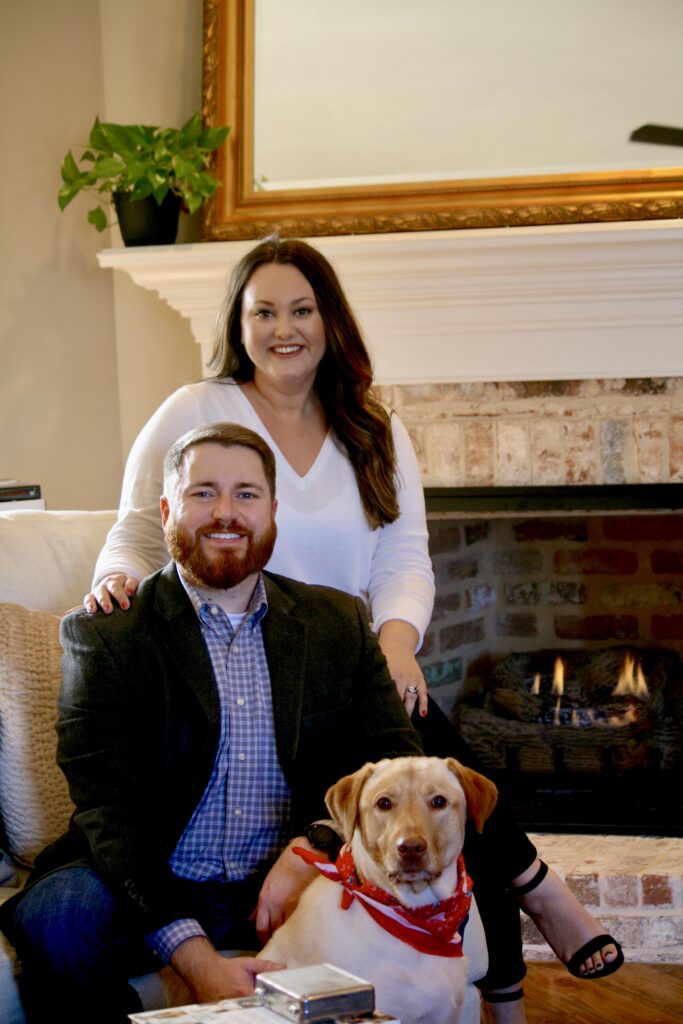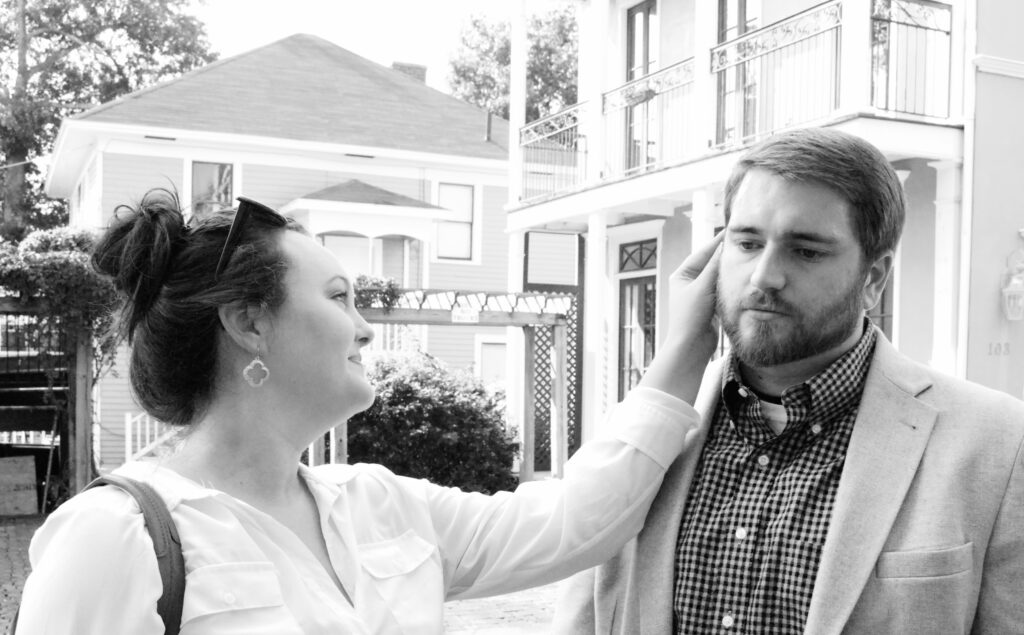
Bailey Henry is the kind of person who feels like home. She actually is from my own hometown, but I bet if you met her she'd feel like home to you too--that's just the kind of person she is. A conversation with her carries an ease that can only come from a woman who is completely at peace with who she is.
Bailey has been pregnant five times and has experienced five miscarriages. Whether you've experienced infertility personally or not, you're going to find yourself somewhere in the words she's shared here. Her interview is authentic, honest, raw, and hopeful.
Bailey is as tough as steel and full of grace. She has a faith that isn't one bit sweet and fluffy, but feels very real--I have to think this is because her faith has been through quite a bit of testing and has come out still standing.
You're going to be moved and encouraged by Bailey Henry. I'm so truly honored to share her story.
Tell us about yourself and your family?
My name is Bailey Henry. I’m 31 years old and I’ve been married to my best friend, Kyle, since September 2015. Kyle and I have a dog named Stella, several house plants, a bathroom that needs to be retiled, and a constant itch to be on the beach. I work in advertising and my husband is in finance. I grew up in a small town called Picayune and the town along with her people are really hard to explain. My husband is from Canton, Mississippi, and I’m thankful that we didn’t meet until we were in our early twenties. We are boringly normal and grossly in love. We eat Newk’s every Friday night, we can never agree on movies or music, and we both love the idea of selling everything we own to live out of an RV and travel full time. We will obviously never do that, but we really love the idea.
Will you share about your experience with infertility and loss? Did you ever think this would be a struggle for you?
My struggle with infertility was just as surprising to me as my first pregnancy. It came quick and unexpected, as have all of my losses since then. I was 27 when I experienced my first miscarriage, and I’ve since learned that women know their bodies so incredibly intimately, and we must trust our own intuition over anything else. Women who are forced to face infertility are so strong. Whether that strength is spiritual, or mental, or physical, these women are as strong as steel. And I now know that there is no same story. Life is not one-size-fits-all. What is helpful for one woman for conception, carrying a child, or healing, won’t mean anything to the next woman.
I never thought this would be my struggle. I mention in my book that all I’ve ever witnessed was teenage accidents or well-timed conception. I never witnessed infertility, and no one ever talked about it. So, when I began to experience miscarriages, I felt so very alone. Like I was singled out among the woman who wanted children and I was forced to work ten-times harder for my family. I’ve also discovered that for growing your family, grief, healing, or just life in general—there is no one blanket of goodness. Just like there is not one big blanket of badness. Life is peppered with highs and lows, blessings and curses. You have to take a bit of the salty, along with the sweet.

What led you to start sharing about your experiences online?
Loneliness is the short answer. I felt so incredibly alone, and my husband didn’t know how to help me. I knew a handful of women who had one miscarriage before they had their families, and I figured if I knew just a handful, then certainly Facebook knew many, many more. I shared about our first loss and received so many messages from women who were my age and struggling. And from women who were much older but had losses themselves years before and they had never told anyone. One message in particular stuck out and I will never forget it. A woman shared with me that she had suffered a miscarriage and never even told her husband. She held that inside of her for over thirty years. My heart goes out to the women who hold something like that in for so long.
I had a voice in my head telling me that no matter what, just keep sharing. If God put me here for a reason, it’s probably because He knew I would talk about it for others. If there has ever been a taboo subject to be discussed in a hushed whisper, I’m always the one discussing it out loud. Very loudly. Sharing has helped. We were not made to suffer alone or in silence.
How have your losses changed you? Can you see ways that you've been changed for the better?
I’m an entirely different person now. My losses have made me more patient, more empathetic, and somehow, more confident. I have a faith that I’m still unsure of, but I know God more deeply today than I did four years ago. He is so very mysterious, and we are not promised anything on the cross. My salvation was promised to me—not a healthy pregnancy, or even motherhood for that matter. The Lord is good, and just, and loving, whether I have a baby or not. God is still God whether or not I get my happy ending. That was a tough pill to swallow, but it has been a freeing ideal. The idea of pregnancy loss used to make me feel weak and I know that I’ve been changed for the better because I don’t view it in that light any longer. I’m very strong. I’m very sure of myself. I found myself through these losses, it certainly was not a fun coming of age story, but it is my story.

What led you to write your book?
I have always loved telling stories and writing, but in the fall of 2020, I began finding it difficult to focus on anything else besides putting my story together for myself and women like me. I couldn’t sleep or eat. I couldn’t focus on work or even my marriage. There was something calling me to the table, something was calling me to be very still and to start from the beginning. I began searching for books online like the one I had in mind to write, and I found that there wasn’t much to choose from. I thought if I could be brave enough to share my story, that it might fill a space of need. There are books on infertility, but none of them took the approach I did. I did my best to fill that open spot.
I fed the calling that beckoned me, and my book was complete about six months later.
How have friends and family supported you well during this time?
This is a tricky one. I have the best friends and family in the world, but they are clueless on how to help me during my losses. Most people are clueless on how to navigate loss and grief in general, but there is an added layer of awkwardness and silence when it’s pregnancy loss. Most people have no idea what to say, and that is okay. But the not saying anything at all is really tough. You feel forgotten and overlooked. Empathy comes to you from the most unexpected places, but the people in your life who you think will drive and show up at your door to comfort you, are actually the ones who don’t call to check in. I know they don’t mean any harm, it’s just uncomfortable for them. And that is okay. I believe we have to ask for what we need. Our loved ones are just that, our loves. They are not mind readers. I’ve learned to ask for what I need from them and they deliver, but that did not happen right away. Really, the only ones who know what to say and how to say it, are the ones who’ve experienced pregnancy loss themselves. This is such a specific type of hurt, but once you know it personally, you understand it for the rest of your life.
How would you encourage someone else experiencing infertility?
This is also a tough one. Just the other day a woman sent me a private message asking me how I get through the hard days and I felt terrible because I didn’t have a neatly packaged elevator pitch to feed her. Four years and five losses later, I still can’t provide a solid answer.
In my experience, there is no one answer. No single piece of advice to help. It’s a bunch of little things and it’s nothing at all. On the bad days, in the pit of infertility I’ve found that if you have faith, you should cling to it. If you have a favorite ice cream, you should eat it straight from the carton. If you have a favorite blanket, you should put it in the dryer for a few minutes and then wrap yourself inside of it. You should watch every single episode of Schitt’s Creek and be conscious of your breathing. Text your friends and call in to work for the day. Take hope in yourself and brighter days ahead. Be thankful for modern medicine, and Netflix. Trust yourself and find humor where you can. This is a devastating journey and can often be a lonely one. Comfort yourself, take care of yourself, ask for what you need, and hold on.
Where do you find hope?
I suppose I find hope in lots of things. I look for hope in nature, in the gorgeous sunrises and sunsets that Mississippi boasts. They remind me of new beginnings. And I’ve always been a big fan of new beginnings, do-overs, fresh starts, and first chapters.
I’m hopeful for all women who hurt like me, that they will find a way to the families they deeply desire. I’m extremely hopeful for open and honest conversations around miscarriage, pregnancy loss, women’s grief, and grief as a whole.
We live in a time of me too and cancel culture. Those are very conflicting culture movements, and women are usually caught in the crosshairs and we are also the ones pulling the trigger. I’ve been judged by other women for sharing my journey, I’ve been judged for not having children, and I’ve been blamed for losing them. I’m very hopeful that my story can start an open conversation of honesty that will continue for years to come.
I’m hopeful for peace and understanding. I’m hopeful that I’m right where I should be. And even though it hurts sometimes, most of us are right where we should be.
